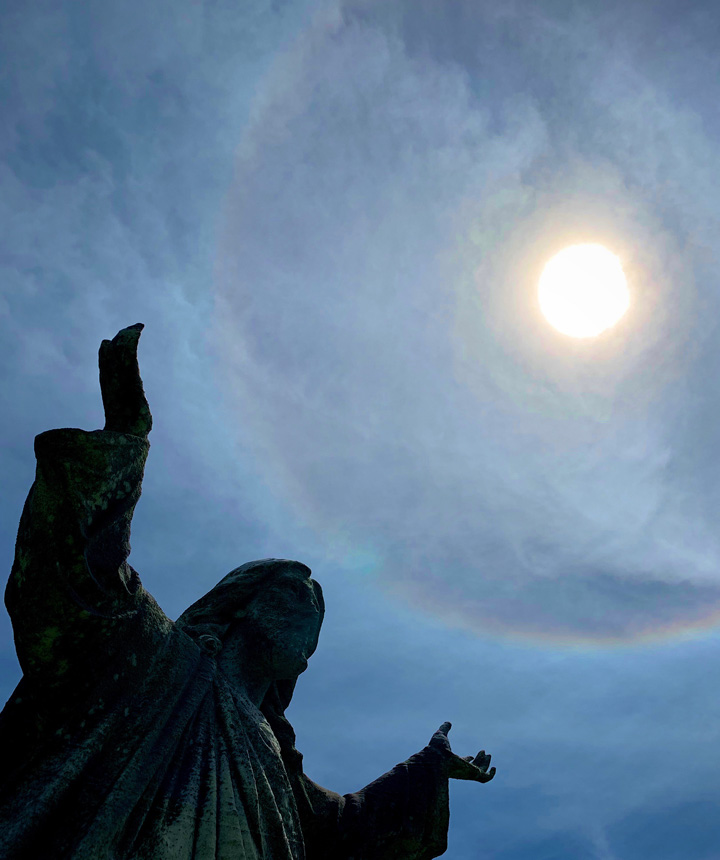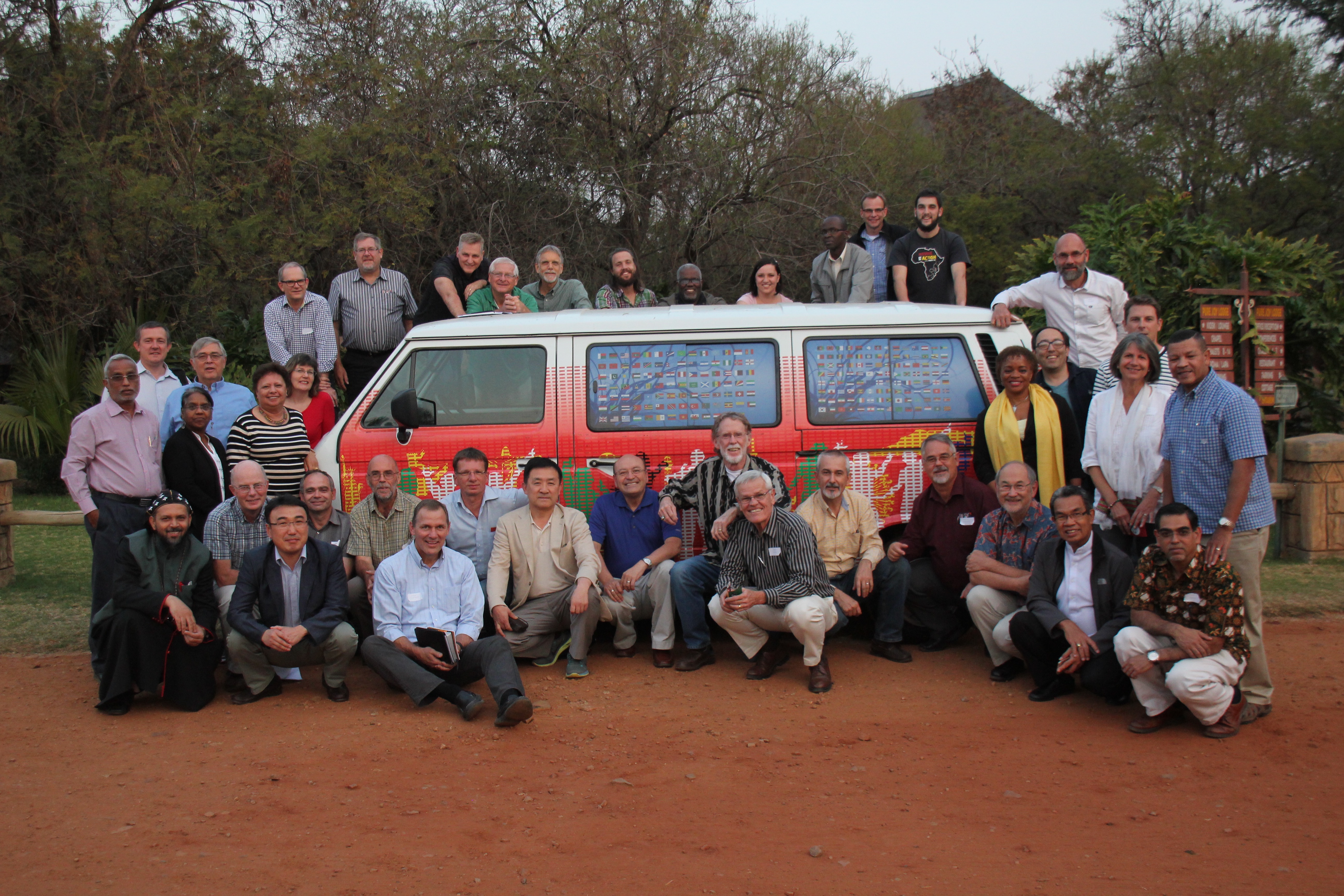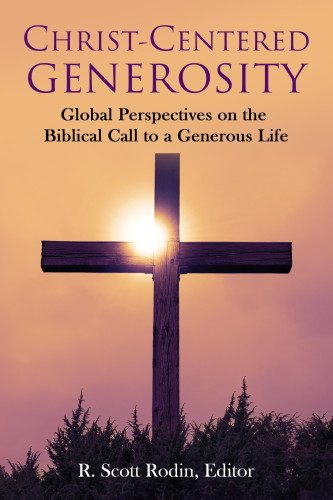A COVID CRISIS EASTER
[10 Minute Read]
Dear fellow participants in God’s mission,
Grace and peace to you in the name of the Lord Jesus Christ.
As Easter 2020 approached, and COVID-19 was exponentially growing around the world I joined many global Christian leaders in referring back to Christian history to read of how those who had gone before us responded to pestilence and disease, even when the Church was beset by persecution. One of the earliest examples of Christian witness in a time of COVID-like crisis comes from the collections of the church historian Eusebius. Recalling an Easter period under his leadership (about AD259), when a plague swept through the land, Bishop Dionysius wrote (my praraphrase):
Most of our Christian family did not spare themselves, so great was their affection for one another. They were fully committed to each other, visited the sick without fear, ministered to them with great care and perseverance, and served them for the sake of Christ. With great joy they chose to even perish with them… Indeed, many did die. After caring for the sick and giving health to others, they took on the death of others, as it were, into themselves when they too contracted the illness. In this way the noblest of our people died, including leaders—some presbyters and deacons and people of the highest reputation among us and society… It was quite the opposite for those who do not follow Christ. They abandoned those who began to sicken, fled from even their dearest friends, threw out the sick when half dead into the streets, and let the dead lie unburied.
While leaders were dying by their example of caring for the sick, younger ones would step up and take their place in serving the infected, willing to sacrifice their own wellbeing for the compassion required of being a follower of Jesus Christ. What an example!
Action Addictions
Of course, these days those who do not follow Christ do not run so quickly from the disease and leave their dead and dying on the roadside (unless mortuary services are overrun such as in the case of Ecuador). Where available, we have health professionals putting themselves on the line to care for the sick and dying. In many countries, Christian leaders are not permitted to assist even if they were willing. We have been banished to our homes by the State. The Church has been forced to meet in quarantine—only the digitally-privileged are able to connect virtually. Yet, we wait for our chance to serve, as part of the recovery if not the treatment.
Although we are encouraged to “wait upon the Lord” in Scripture (Psalm 27:14, 33:20), to be still (Exodus 14:14, Psalm 46:10) and trust/hope in the Lord (Isaiah 40:31), Christian leaders typically do not do nothing very well. We tend to be activists. We want to engage with problems and find solutions, we want to mobilise resources to produce results, to be with those we lead and comfort and encourage them in times of trouble. It is frustrating to be limited by what we can do via a screen with a keyboard, microphone and camera when that same screen is showing us images of how progressively bad the impact of a tiny virus is having on the world. This microscopic organism is revealing our impotence and humans do not like feeling powerless.
Channeling Chatter
So we talk. We fill up the contemporary communication lines with advice and predictions and teaching and training. At worst we have the prophets of doom arguing that the virus is a portent of the end. Or, at the other end of the spectrum, the prophets of prosperity, proclaiming that the virus will have little effect and will be resolved quickly—don’t worry be happy. We have the conspiracy theorists claiming governments are fearmongering to increase their control, demanding an end to the lock-downs, all fueled by the priests of Mammon interceding for the opening of the markets so they can feast once again on economic gain.
At best, we have the skilled researchers and consultants advising leaders how to navigate the stormy waters, based on lessons of the past and extrapolating scenarios and strategies from data that flows in daily. We have the scientists providing sober conclusions from the analysis they have done with the information they currently have to hand. We have the academics proposing theoretical models to guide us through uncharted waters and the civil authorities doing their best to keep us calm and confident in an eventual recovery.
What Would Jesus Do?
Lastly, but by no means least, we have the theologians who pour over Scripture in prayer before God seeking signs of the times. Not relying on their own gut instincts, biases, or face-value readings of the text, the best of them weigh up numerous data points as they search the ancient writings for interpretations valid for our age, for our crisis, for our future. Like the clichéd “men of Issachar” they seek to ‘understand the times to know what the people of God should do’ (1 Chronicles 12:32). They answer the question, “what would Jesus do?” with examples of love, peace, joy and grace; of sacrifice, service, generosity, kindness, compassion, gentleness, goodness and self-control.
They tell us that Jesus would speak against the rich and powerful, the self-righteous and falsely secure who are set to make a killing out of this crisis. He would defend the cause of the dependent and underprivileged, and call for the forgiveness of all debts, just as the Father has forgiven us ours. He showed us what He would do through suffering, the cross, a death and burial, then resurrection. Self-sacrifice for the good of others.
The least we can do for others is to stay home with our loved ones as much as possible, wear a mask outside if we have one or can make one, and wash our hands. And wait. It is Easter after all. We are promised a resurrection. Maranatha, come Lord Jesus.
Pray
- Wisdom for Christian leaders around the world in this time of crisis. Particularly for the leaders of missions groups who are facing a very difficult future in the aftermath of the COVID-19 pandemic.
- For the people of God to shine brightly by their lives and actions in the midst of spiraling crisis and fear. May we be known as a people of peace, love, generosity and inclusion as we follow Christ and invite others to join us in His fellowship.
Follow
Click here for Jays’ personal blog. Jay can also be followed on Facebook here.










